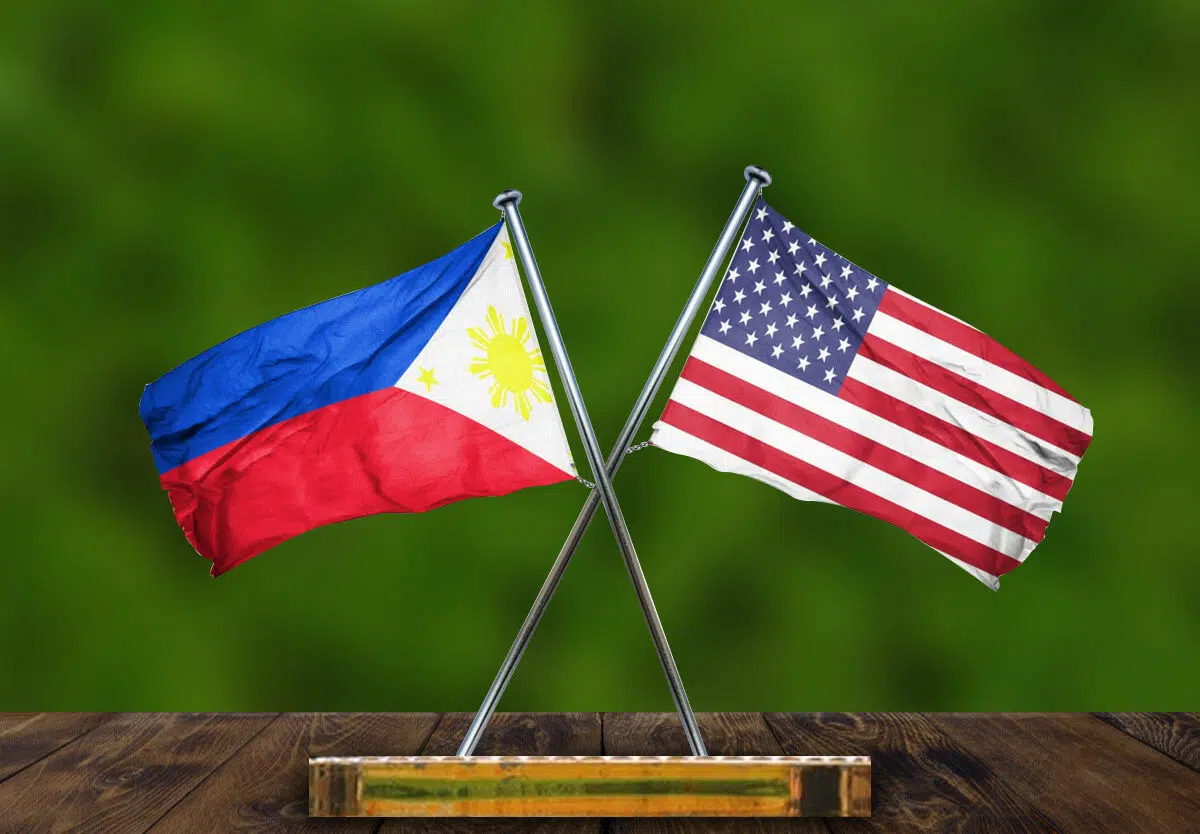Origins of Philippine-American Friendship Day
The Philippine-American Friendship Day, celebrated annually, has its origins firmly rooted in the post-World War II era, marking a significant milestone in the relationship between the Philippines and the United States. Officially observed for the first time in 1946, this day emerged shortly after the Philippines declared its independence from American colonial rule. The historical context surrounding this event is critical in understanding the importance of the celebration; it underscores both countries’ commitment to fostering a spirit of camaraderie and shared values following a period of tumultuous governance.
With the end of colonial rule, the Philippines sought to redefine its identity on the global stage, while the United States aimed to maintain a positive and cooperative relationship with its former territory. The establishment of Philippine-American Friendship Day served as a formal recognition of the bonds that had developed between the two nations over numerous pivotal events that had shaped their futures. This day symbolizes not only the independence of the Philippines but also the enduring friendship that has persisted despite historical complexities.
The observance of Philippine-American Friendship Day has become an avenue for promoting cultural exchange, mutual respect, and understanding between the people of both nations. Various activities such as parades, cultural performances, and community gatherings can be seen throughout the Philippines, demonstrating the deep-rooted affection and respect that characterize the bilateral relationship. As it evolved, this day has increasingly emphasized the importance of collaborative efforts in addressing common challenges and celebrating shared achievements. All in all, the origins of this day represent a pivotal moment in acknowledging and celebrating the resilience of Filipino-American relations, reflecting a journey of historical significance that continues to thrive today.
Cultural Significance and Celebration
Philippine-American Friendship Day, celebrated on July 4th, serves not only as a commemoration of the historical ties between the Philippines and the United States but also as an opportunity to underscore the cultural significance shared by both nations. The day is marked by various festivities in both countries, highlighting the unique bonding and camaraderie established over decades of shared experiences.
In the Philippines, celebrations often feature vibrant parades, traditional folk dances, and cultural programs that display the rich heritage of the nation. Community organizations come together to host events showcasing Filipino art, music, and cuisine, reflecting the multifaceted identity of Filipino culture. These events have grown to attract diverse audiences, fostering a spirit of inclusiveness and friendship. Such gatherings not only celebrate Philippine culture but also embrace the various influences from American traditions, enhancing mutual understanding.
In the United States, Filipino-American communities commemorate this special day through similar festivities, integrating both traditional Filipino elements and American customs. Activities may include food fairs, cultural showcases, and educational programs designed to promote awareness about Filipino heritage. For many, this celebration serves as a vital link that connects generations, reminding them of their shared history and mutual respect. Over the years, the evolution of these events reflects the growing recognition of Filipino-Americans and their contributions to the broader American society.
Overall, the celebrations of Philippine-American Friendship Day underscore the importance of cultural representation and community involvement in strengthening ties between the two nations. These events not only celebrate diversity but also promote ongoing dialogue and friendship, reinforcing the shared values that connect Filipinos and Americans alike.
Diplomatic Relations and Cooperation
The Philippine-American Friendship Day, observed annually on July 4, serves as a poignant reminder of the long-standing diplomatic relations between the Philippines and the United States. This day not only commemorates the historical ties formed during the colonial period but also highlights the ongoing cooperation in various fields, such as education, military collaboration, trade, and humanitarian efforts. The foundation of these relations can be traced back to the early 1900s, culminating in shared values and mutual interests that continue to shape the partnership today.
Over the decades, the Philippines and the United States have developed a robust alliance characterized by strategic military agreements and collaborative projects that strengthen national security. The Mutual Defense Treaty, established in 1951, exemplifies this commitment, allowing both nations to work closely in addressing regional threats. Philippine-American Friendship Day resonates deeply within military circles, serving as a catalyst for joint exercises and training programs that enhance the operational capabilities of both forces. These activities reinforce trust and cooperation, essential components of a successful partnership.
In addition to military cooperation, the realms of education and trade have blossomed under this friendship. Numerous exchange programs and academic partnerships have emerged, allowing Filipino students and professionals to benefit from educational opportunities in the United States. Such initiatives facilitate cultural exchanges that enrich the understanding between the two nations. Trade relations have also seen significant growth, with bilateral agreements fostering economic collaboration that benefits both economies. The Philippine-American Friendship Day acts as a vital platform to promote these endeavors and celebrate the advancements made over the years.
The commemorations associated with this day are essential in nurturing political and economic ties. They provide an opportunity for both countries to reflect on their shared history and envision a future of mutual prosperity. As diplomatic relations continue to evolve, Philippine-American Friendship Day remains a vital symbol of the enduring partnership between the two nations.
Legacy and Future of Philippine-American Friendship
The legacy of Philippine-American Friendship Day is an enduring testament to a relationship that has transcended borders, fostering goodwill and collaboration since its inception. Established to commemorate the ties forged through history, this observance serves as a reminder of the shared values and aspirations that continue to connect the peoples of the Philippines and the United States. As we reflect on the brief history of the Philippine-American Friendship Day, it becomes evident that the enduring friendship between the two nations has played a pivotal role in shaping cultural exchanges, educational initiatives, and economic partnerships.
In the contemporary context, the significance of this day extends beyond mere celebration; it symbolizes an ongoing commitment to mutual understanding and respect. Initiatives aimed at promoting deeper cultural awareness have taken various forms, such as educational programs, cultural festivals, and community outreach activities. These endeavors not only highlight the richness of Filipino and American cultures but also emphasize the importance of dialogue and collaboration in an increasingly interconnected world. Through these initiatives, the legacy of Philippine-American Friendship Day continues to develop, inspiring future generations to appreciate the value of diversity.
However, the path forward is not without challenges. In recent years, globalization and evolving geopolitical landscapes have introduced complexities in bilateral relations. Issues such as trade agreements, regional security concerns, and migration policies are all factors that can impact the nature of the friendship between the Philippines and the United States. Despite these challenges, the spirit of cooperation remains resilient. By investing in people-to-people ties and fostering cultural diplomacy, both nations aspire to deepen their connections, ensuring that the friendship remains robust in the face of change.
Ultimately, as we consider the ongoing legacy of Philippine-American Friendship Day, it is clear that this relationship is built on a foundation of mutual respect and shared values, paving the way for collaboration and camaraderie in the years to come.

